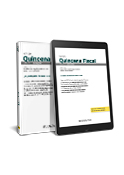
January marks the New Year, where we all start new chapters, resolutions, and objectives. Most of us barely returned from the Holidays to see that the OECD was rushing with another package of publications for the third consecutive year. It is not yet believed to be the last one. It released the new Administrative Guidance on Article 9.1 of the Global Anti-Base Erosion (“GloBE”) Model Rules, agreed upon by the OECD/G20 Inclusive Framework on BEPS (“Inclusive Framework”), which focuses on deferred tax assets (DTAs) arising from certain tax benefits provided by General Government. The changes mentioned in this guidance will be added to the Commentary to the GloBE Model Rules, release in March 2022.
The package includes Central Record of Legislation with Transitional Qualified Status which sets out the jurisdictions whose minimum tax legislation has completed the agreed process and secured transitional qualified status. OECD states that this document will be regularly updated.
The third set of documents released is about the update to GloBE Information Return (“GIR”) and Multilateral Competent Authority Agreement (“MCAA”).
The most considerable changes are about article 9.1 of the former Administrative Guidance which applies to DTAs arising from governmental arrangements and limits tax attributes to be taken into account in the computation of the effective tax rates under GloBE rules and the transitional country-by-country reporting (“CbCR”) Safe Harbor.
The GloBE Model Rules require jurisdictions with a Qualified Income Inclusion Rule (“QIIR”), Qualified Under-Taxed Payments Rule “(QUTPR”), or Qualified Domestic Minimum Top-Up Tax (“QDMTT”) to maintain their domestic laws in alignment with these rules and not offer benefits application of Article 9.1 to DTAs. If a jurisdiction’s government has provided such benefits, it cannot achieve QDMTT status under transitional qualifications.
Furthermore, the Inclusive Framework views certain tax benefits as Related Benefits when provided in jurisdictions with a Domestic Minimum Top-Up Tax (“DMTT”) that does not exclude associated deferred tax expenses pursuant to Article 9.1. Consequently, if a DMTT jurisdiction’s government offers specific tax benefits, the associated legislation would not qualify. However, an exception allows jurisdictions that have granted such tax benefits to self-certify for transitional QDMTT status, provided they commit to applying guidance to neutralize a portion of the resulting deferred tax expense. If they fail to do so, other jurisdictions can neutralize the same portion by following the switch-off rule in the QDMTT Safe Harbour.
The 3 revised attributes:
The Inclusive Framework had outlined 3 categories of tax attributes that should be excluded from the regime established under Article 9.1, though a grace period has been granted to allow for limited consideration of these attributes:
- DTAs resulting from governmental arrangements:
This category involves DTAs that arise from governmental arrangements created or modified after November 30th, 2021. If said arrangements grant specific entitlements to tax credits or relief, which do not occur independently of the arrangement itself, these DTAs would not be recognized in the regime.
It seeks to safeguard against taxpayers benefiting from government funding of tax credits before they enter the so-called Transition Year. For example, if a taxpayer received a tax credit in December 2023 before entering the regime on January 1st, 2024, originally, the DTA linked to that credit was supposed to be respected. The present new guidance acts to prevent taxpayers from gaining this type of advantages from discretionary tax credits that were not earned through qualifying expenditures.
- DTAs resulting from tax elections:
This category addresses situations where a Constituent Entity changes or exercises an election after November 30th, 2021, which retroactively alters the treatment of a transaction for taxable income determination, in prior years. DTAs recognized under these circumstances should not be accounted for in the regime.
Thus, taxpayers, who reconsidered their prior elections to optimize their tax position when the GloBE Model Rules were introduced, would face penalties. For example, a jurisdiction aiming to attract foreign investment may have previously offered the choice between a full amortization of the investments FMV or tax holidays. Under GloBE, while the benefit is recaptured, the full amortization treatment remains respected. In this case, taxpayers would have made different choices, had they been informed of the possibility of the new rule.
- DTAs arising from a new tax regime:
This category pertains to DTAs and/or liabilities that result from differences in tax basis or accounting value of assets and/or liabilities. If these differences were established via a corporate income tax enacted by a jurisdiction without a prior regime, imposed after November 30th, 2021, these attributes would also not be accepted within the framework.
It focuses on the economic transition adjustment introduced in Bermuda’s Corporate Income Tax Act 2023, which allows the amortization of specific assets over a decade. Despite the intended benefits for businesses in Bermuda, the Inclusive Framework has expressed discontent with this measure, suggesting that it will not recognize the DTA associated with the economic transition adjustment.
Grace period granted:
There will be a grace period for the aforementioned tax attributes, subject to a cap of 20% of each attribute’s original recorded amount. Said cap applies cumulatively throughout the grace periods, which for the first 2 categories runs from January 1st, 2024, to December 31st, 2025. However, for the 3rd category, the Bermuda economic transition adjustment, it runs from January 1st, 2025, to December 31st, 2026. To be note, there will be no grace period allowed for losses that predate the new corporate income tax regime, because such losses do not exist post-guidance.
These developments will impact the calculation of adjusted covered taxes according to the GloBE Model Rules and will also influence the simplified effective tax rate under the transitional CbCR Safe Harbor.
Furthermore, the new guidance aims to prevent taxpayers from accelerating the benefits of these tax attributes by amending arrangements post November 18th, 2024. Also, jurisdictions are barred from adopting this type of attributes for the purpose of benefiting from the grace period; only attributes that existed before this date qualify.
Amendments to Article 9.1.3 and further implications:
the aim of the amendments to Article 9.1.3 are to ensure that the 3 identified tax attributes are disregarded, when evaluating the extent to which asset transfers within a group are taxed under the revised rules. For example, if an asset transfer occurred pre-Transition Year that led to using one of the previously mentioned tax attributes, the favorable treatment granted under Article 9.1.3 for DTAs would not apply.
Moreover, as part of this new guide, the Inclusive Framework agreed on an exceptional derogation that allows jurisdictions that have granted these attributes to retain eligibility for the QDMTT Safe Harbor. This status is crucial, as jurisdictions that do not restrict such attributes may unduly affect taxpayers not seeking to exploit these benefits.
In this regard, the guidance highlights that the Inclusive Framework is working on directives to identify jurisdiction-specific benefits that should be assessed in two contexts:
- Tax refunds that lower adjusted covered taxes, particularly regarding covered taxes like corporate income tax.
- Reductions in the QDMTT liability, particularly concerning the QDMTT itself, including a potential switch-off mechanism to restrict the application of the QDMTT Safe Harbor when necessary.
Finally, this guidance indicates a recognition of prior practices while emphasizing that ongoing compliance will be closely monitored. Future guidance is expected to clarify benefits provided by jurisdictions, to ensure a coordinated evaluation of whether these benefits are classified as «related benefits,» including those provided by investment promotion agencies or subnational government entities.
Conclusion:
The modifications to the commentary on the GloBE Model Rules significantly impact how the rules function in specific situations, potentially leading to increased tax liabilities for taxpayers involved. While these changes are described as non-retroactive, they pose a challenge for those who may encounter tax liabilities in 2024 based on regulations that will be disclosed publicly in 2025. Considering the history of jurisdictions applying administrative guidance prospectively, it will be essential to monitor how the enforcement of these new measures develops.
Till then… Cheers!
The opinion expressed in this article is exclusively that of the author and does not reflect and cannot be related to her professional environment.



